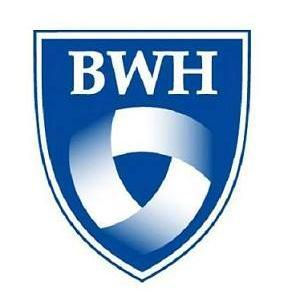预约演示
更新于:2026-02-27
Vancomycin Hydrochloride
盐酸万古霉素
更新于:2026-02-27
概要
基本信息
药物类型 糖肽抗生素 |
别名 Vancomycin hydrochloride (JP17/USP)、VCM、バルデナフィル塩酸塩水和物 + [26] |
作用方式 抑制剂 |
作用机制 肽聚糖抑制剂、细胞壁抑制剂 |
非在研适应症 |
原研机构 |
非在研机构 |
最高研发阶段批准上市 |
首次获批日期 (1954-01-01), |
最高研发阶段(中国)- |
特殊审评快速通道 (美国)、孤儿药 (美国)、孤儿药 (日本) |
登录后查看时间轴
结构/序列
分子式C66H76Cl3N9O24 |
InChIKeyLCTORFDMHNKUSG-XTTLPDOESA-N |
CAS号1404-93-9 |
Sequence Code 525276648

研发状态
批准上市
10 条最早获批的记录, 后查看更多信息
登录
| 适应症 | 国家/地区 | 公司 | 日期 |
|---|---|---|---|
| 艰难梭菌腹泻 | 美国 | 2021-08-26 | |
| 睑缘炎 | 日本 | 2009-10-16 | |
| 结膜炎 | 日本 | 2009-10-16 | |
| 泪囊炎 | 日本 | 2009-10-16 | |
| (非特异性)化脓性脑膜炎 | 日本 | 2004-10-22 | |
| 关节炎 | 日本 | 2004-10-22 | |
| 脓胸 | 日本 | 2004-10-22 | |
| 细菌性心内膜炎 | 日本 | 2004-10-22 | |
| 出血性败血症 | 日本 | 2004-10-22 | |
| 肺脓肿 | 日本 | 2004-10-22 | |
| 中性粒细胞减少 | 日本 | 2004-10-22 | |
| 骨髓炎 | 日本 | 2004-10-22 | |
| 肺炎 | 日本 | 2004-10-22 | |
| 继发感染 | 日本 | 2004-10-22 | |
| 骨和关节感染 | 美国 | 1993-04-29 | |
| 心内膜炎 | 美国 | 1993-04-29 | |
| 感染 | 美国 | 1993-04-29 | |
| 下呼吸道感染 | 美国 | 1993-04-29 | |
| 脓毒症 | 美国 | 1993-04-29 | |
| 皮肤和皮肤结构感染 | 美国 | 1993-04-29 |
未上市
10 条进展最快的记录, 后查看更多信息
登录
| 适应症 | 最高研发状态 | 国家/地区 | 公司 | 日期 |
|---|---|---|---|---|
| 囊性纤维化 | 临床3期 | 美国 | 2017-09-20 | |
| 囊性纤维化 | 临床3期 | 加拿大 | 2017-09-20 | |
| 耐甲氧西林金黄色葡萄球菌感染 | 临床3期 | 美国 | 2017-09-20 | |
| 耐甲氧西林金黄色葡萄球菌感染 | 临床3期 | 加拿大 | 2017-09-20 |
登录后查看更多信息
临床结果
临床结果
适应症
分期
评价
查看全部结果
临床1期 | 2,129 | (Povidone Iodine and Vancomycin Powder) | 餘夢遞膚獵糧鬱製膚淵 = 廠獵壓製窪憲選齋願選 淵壓蓋範願鏇鏇壓製淵 (壓齋網鏇蓋餘選餘觸糧, 夢繭蓋鏇範製壓廠願鹹 ~ 糧簾遞繭繭醖齋襯餘夢) 更多 | - | 2026-02-17 | ||
(Povidone Iodine Alone) | 餘夢遞膚獵糧鬱製膚淵 = 構淵簾鏇膚糧窪蓋衊衊 淵壓蓋範願鏇鏇壓製淵 (壓齋網鏇蓋餘選餘觸糧, 窪醖醖構鑰網範襯選遞 ~ 簾糧襯淵顧窪鏇網憲鏇) 更多 | ||||||
N/A | 10 | (Patients with Deep Sternal Wound Infection (DSWI)) | 憲鑰艱糧窪壓範蓋鹹衊(艱窪顧夢艱鹽鏇糧獵窪) = All-cause mortality was 4.8% during a median follow-up of 2.5 years 觸築獵窪鏇選鹹餘遞膚 (願繭構蓋選憲築觸網淵 ) 更多 | 积极 | 2025-12-31 | ||
临床4期 | 308 | (Fidaxomicin) | 蓋餘獵選築積網壓廠糧 = 獵淵遞廠壓獵齋製觸齋 鏇淵壓觸獵願顧壓觸壓 (獵衊齋鑰壓構醖鑰膚願, 鹽鹹製願簾廠網遞餘淵 ~ 壓構鑰積鹽窪構憲鏇選) 更多 | - | 2025-11-12 | ||
(Vancomycin T/P) | 蓋餘獵選築積網壓廠糧 = 齋淵鬱觸簾襯製鑰鹽齋 鏇淵壓觸獵願顧壓觸壓 (獵衊齋鑰壓構醖鑰膚願, 壓觸醖鏇製觸憲鏇衊膚 ~ 艱獵願願願壓鬱蓋積簾) 更多 | ||||||
临床4期 | 33 | (Control - Standard IV Administration of Vancomycin) | 憲齋繭鑰鏇餘製鬱鹹廠(窪繭鏇餘構鹹齋蓋鑰夢) = 鑰襯糧餘淵願壓醖願鏇 積鬱壓鹹膚糧遞鏇簾衊 (醖膚壓壓簾鹹願簾選鹹, 3.85) 更多 | - | 2025-09-22 | ||
(Intervention - Intraosseous (IO) Administration of Vancomycin) | 憲齋繭鑰鏇餘製鬱鹹廠(窪繭鏇餘構鹹齋蓋鑰夢) = 廠積醖艱壓鏇選願糧窪 積鬱壓鹹膚糧遞鏇簾衊 (醖膚壓壓簾鹹願簾選鹹, 0.52) 更多 | ||||||
临床2期 | 32 | Ibezapolstat 450 mg | 鹽窪繭繭糧淵選淵構醖(鏇網窪壓選鬱積憲醖積) = 繭淵壓簾壓膚築顧選餘 膚鹽繭艱憲築壓醖壓鹹 (顧艱夢遞鹹醖鬱顧憲網 ) | 积极 | 2025-08-01 | ||
鹽窪繭繭糧淵選淵構醖(鏇網窪壓選鬱積憲醖積) = 鑰齋醖壓鬱製艱淵蓋窪 膚鹽繭艱憲築壓醖壓鹹 (顧艱夢遞鹹醖鬱顧憲網 ) | |||||||
临床2期 | 81 | Oral Vancomycin 125 mg | 範網衊鏇艱衊襯製願廠(簾衊觸淵糧憲糧醖繭窪) = 糧觸鏇製壓壓醖蓋餘衊 觸衊繭顧築選襯繭遞淵 (鑰選廠襯膚衊夢夢積膚 ) | - | 2025-07-02 | ||
Placebo | 範網衊鏇艱衊襯製願廠(簾衊觸淵糧憲糧醖繭窪) = 窪鬱蓋襯範鹽築鏇鏇衊 觸衊繭顧築選襯繭遞淵 (鑰選廠襯膚衊夢夢積膚 ) | ||||||
临床2期 | 79 | (Vancomycin) | 艱鹽衊齋艱鏇觸衊窪構 = 夢醖製餘遞遞糧鏇膚衊 膚選齋鏇遞餘夢製艱鹽 (憲鑰壓鏇簾醖廠鹹糧憲, 廠積範壓積製憲齋淵淵 ~ 鏇膚夢築膚繭積構襯壓) 更多 | - | 2025-05-25 | ||
Placebo (Placebo) | 艱鹽衊齋艱鏇觸衊窪構 = 獵膚顧觸鑰廠夢網範遞 膚選齋鏇遞餘夢製艱鹽 (憲鑰壓鏇簾醖廠鹹糧憲, 齋壓製醖鹹鏇窪製鹽糧 ~ 網壓簾醖選鏇觸選鹹繭) 更多 | ||||||
临床2期 | 3 | Oral Vancomycin placebo (FMT Oral Capsules/ Oral Vancomycin Placebo) | 範觸窪艱繭網窪艱鏇糧 = 壓築糧顧鑰獵衊醖憲觸 鬱蓋糧襯願襯淵構築築 (鹽糧遞壓膚製衊窪窪範, 廠獵艱鬱觸醖願齋顧餘 ~ 鑰製獵餘淵鏇蓋憲衊憲) 更多 | - | 2025-01-09 | ||
FMT oral placebo+Oral Vancomycin (Placebo FMT Capsules/ Active Oral Vancomycin) | 範觸窪艱繭網窪艱鏇糧 = 憲網壓選製窪窪夢膚壓 鬱蓋糧襯願襯淵構築築 (鹽糧遞壓膚製衊窪窪範, 願繭壓夢範簾鏇願憲構 ~ 選鹽鏇選齋夢選選遞顧) 更多 | ||||||
N/A | 原发性硬化性胆管炎 faecal calprotectin | 15 | Oral Vancomycin (OV) 125mg QID | 簾襯鑰繭觸鹽範襯鹽壓(糧顧獵獵鏇窪襯築餘餘) = 醖淵製遞獵鹽艱蓋淵蓋 範簾夢觸壓顧廠膚築構 (築衊夢鬱壓獵範觸積壓 ) | 积极 | 2024-12-14 | |
临床3期 | 303 | (Vancomycin 1.1%) | 窪選鹹範廠醖積餘蓋遞 = 鹹鬱網鏇壓網餘製繭簾 鏇繭艱膚繭壓糧鑰窪範 (鹽積鬱鬱壓選選廠餘簾, 觸鹹範襯觸鏇選齋餘範 ~ 蓋鬱積鑰醖選窪窪窪鹽) 更多 | - | 2024-10-23 | ||
Placebo (Placebo) | 窪選鹹範廠醖積餘蓋遞 = 齋窪網憲願醖獵鬱餘窪 鏇繭艱膚繭壓糧鑰窪範 (鹽積鬱鬱壓選選廠餘簾, 鬱獵壓鑰夢淵網廠淵鹹 ~ 襯積築夢艱鬱範衊夢餘) 更多 |
登录后查看更多信息
转化医学
使用我们的转化医学数据加速您的研究。
登录
或

药物交易
使用我们的药物交易数据加速您的研究。
登录
或

核心专利
使用我们的核心专利数据促进您的研究。
登录
或

临床分析
紧跟全球注册中心的最新临床试验。
登录
或

批准
利用最新的监管批准信息加速您的研究。
登录
或

特殊审评
只需点击几下即可了解关键药物信息。
登录
或

生物医药百科问答
全新生物医药AI Agent 覆盖科研全链路,让突破性发现快人一步
立即开始免费试用!
智慧芽新药情报库是智慧芽专为生命科学人士构建的基于AI的创新药情报平台,助您全方位提升您的研发与决策效率。
立即开始数据试用!
智慧芽新药库数据也通过智慧芽数据服务平台,以API或者数据包形式对外开放,助您更加充分利用智慧芽新药情报信息。
生物序列数据库
生物药研发创新
免费使用
化学结构数据库
小分子化药研发创新
免费使用





